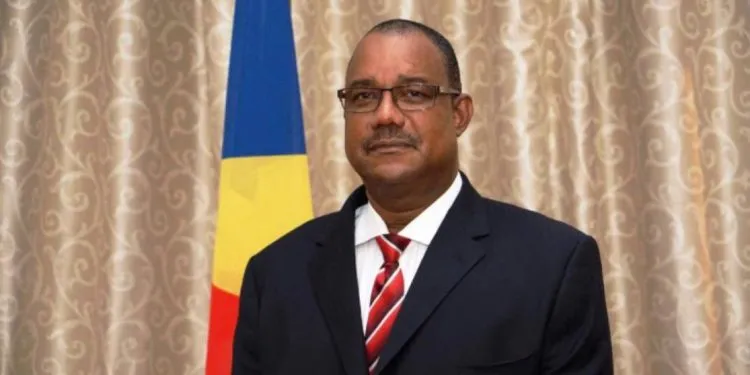The leader of the main opposition party in Seychelles, Patrick Herminie, who is a candidate for the 2025 presidential election, was indicted Monday, October 2, over suspicions of “witchcraft” and “unnatural and superstitious” acts.
He was arrested alongside six others, including a former Speaker of Parliament, at his party headquarters last Friday and was later released on bail.
Herminie, who heads the United Seychelles party, has denounced the charges, calling them politically motivated.
His name was found on the phone of a Tanzanian national who was arrested at the Seychelles International Airport in September.
The Tanzanian was in possession of stones, small bottles containing an unknown liquid, various powders, and documents containing language and symbols described as “satanic”, according to the Seychelles News Agency.
Prosecutors said that the symbols found in the documents were similar to the ones that have been used recently to vandalise multiple buildings in the country, including Catholic churches.
It is still unclear if the Tanzanian national was speaking directly with Herminie or just mentioned his name in an exchange.
Mr Herminie’s arrest was also linked to an ongoing investigation into the suspicious deaths of an elderly woman and a young man, whose bodies were found in a cemetery on the main island, Mahé, in August.
The opposition leader was released on Monday on bail of 30,000 Seychelles rupees (around €2,100).
Herminie told the national press after his release that he did not believe in witchcraft.
“For me, this is a decision that comes directly from the presidency of Mr.Ramkalawan (the Head of State),” he said in the interview.
“This is a political show by the president to eliminate those who he knows will remove him from power in the 2025 elections,” he added.
President Ramkalawan came to power in 2020 after defeating incumbent Danny Faure in a historic win as the first president to come from an opposing political party since 1977.
Although Herminie can legally continue to run for president if found guilty, his reputation in the country would likely suffer. This is because the country is deeply religious, with 82 percent of Seychellois identifying as Christian.
If found guilty, he would face a fine of 3.4 million Seychelles rupees (FCFA 155 million). A new hearing for the case has been scheduled for November 3.



